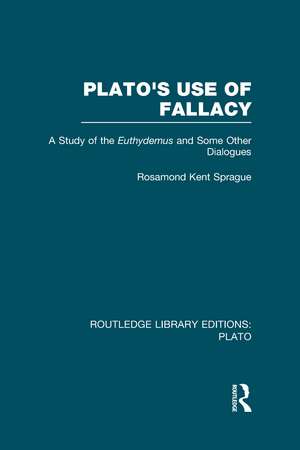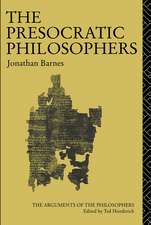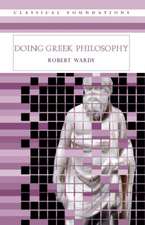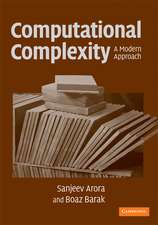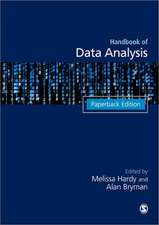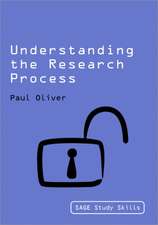Plato's Use of Fallacy (RLE: Plato): A Study of the Euthydemus and some Other Dialogues: Routledge Library Editions: Plato
Autor Rosamond Spragueen Limba Engleză Hardback – 10 sep 2012
| Toate formatele și edițiile | Preț | Express |
|---|---|---|
| Paperback (1) | 320.36 lei 6-8 săpt. | |
| Taylor & Francis – 10 iun 2014 | 320.36 lei 6-8 săpt. | |
| Hardback (1) | 624.07 lei 6-8 săpt. | |
| Taylor & Francis – 10 sep 2012 | 624.07 lei 6-8 săpt. |
Din seria Routledge Library Editions: Plato
- 30%
 Preț: 8421.22 lei
Preț: 8421.22 lei - 13%
 Preț: 294.77 lei
Preț: 294.77 lei - 34%
 Preț: 766.12 lei
Preț: 766.12 lei - 23%
 Preț: 320.36 lei
Preț: 320.36 lei - 38%
 Preț: 766.12 lei
Preț: 766.12 lei - 37%
 Preț: 625.16 lei
Preț: 625.16 lei - 34%
 Preț: 826.15 lei
Preț: 826.15 lei - 54%
 Preț: 417.04 lei
Preț: 417.04 lei - 18%
 Preț: 891.22 lei
Preț: 891.22 lei - 36%
 Preț: 830.28 lei
Preț: 830.28 lei - 38%
 Preț: 765.77 lei
Preț: 765.77 lei - 39%
 Preț: 680.13 lei
Preț: 680.13 lei - 33%
 Preț: 1002.69 lei
Preț: 1002.69 lei - 25%
 Preț: 324.59 lei
Preț: 324.59 lei - 13%
 Preț: 306.62 lei
Preț: 306.62 lei - 37%
 Preț: 624.79 lei
Preț: 624.79 lei - 36%
 Preț: 625.86 lei
Preț: 625.86 lei - 34%
 Preț: 767.38 lei
Preț: 767.38 lei -
 Preț: 497.96 lei
Preț: 497.96 lei - 35%
 Preț: 1001.43 lei
Preț: 1001.43 lei - 34%
 Preț: 765.77 lei
Preț: 765.77 lei - 18%
 Preț: 1286.46 lei
Preț: 1286.46 lei
Preț: 624.07 lei
Preț vechi: 942.08 lei
-34% Nou
Puncte Express: 936
Preț estimativ în valută:
119.41€ • 124.69$ • 98.61£
119.41€ • 124.69$ • 98.61£
Carte tipărită la comandă
Livrare economică 15-29 aprilie
Preluare comenzi: 021 569.72.76
Specificații
ISBN-13: 9780415624046
ISBN-10: 0415624045
Pagini: 124
Dimensiuni: 156 x 234 mm
Greutate: 0.4 kg
Ediția:1
Editura: Taylor & Francis
Colecția Routledge
Seria Routledge Library Editions: Plato
Locul publicării:Oxford, United Kingdom
ISBN-10: 0415624045
Pagini: 124
Dimensiuni: 156 x 234 mm
Greutate: 0.4 kg
Ediția:1
Editura: Taylor & Francis
Colecția Routledge
Seria Routledge Library Editions: Plato
Locul publicării:Oxford, United Kingdom
Public țintă
General, Postgraduate, Professional, and UndergraduateCuprins
Introduction 1. The Euthydemus Introduction (271A-275D) Scene I (275D-278E) Scene II (278E-282D) Scene III (282D-288D) Scene IV (288D-293A) Scene V(293A-304C) Epilogue (304C-307C) 2. Theaetetus (163Aff.) 3. Cratylus (429Bff.) 4. The Hippias Minor. Conclusion. Appendix. Fr. Bichenski on Plato’s Logic. General Index. Index of Passages.
Descriere
There are many fallacious arguments in the dialogues of Plato. The author argues that Plato was fully conscious of the fallacious character of at least an important number of these arguments and that he sometimes made deliberate use of fallacy as an indirect means of setting forth certain of his fundamental philosophical views. Plato introduces them, the author maintains, for the purpose of working out their implications. Plato is thus able to expose them for what they are, to clear away possible lines of attack upon his own position, and even to show that when the proper correction is applied his own views receive support.
